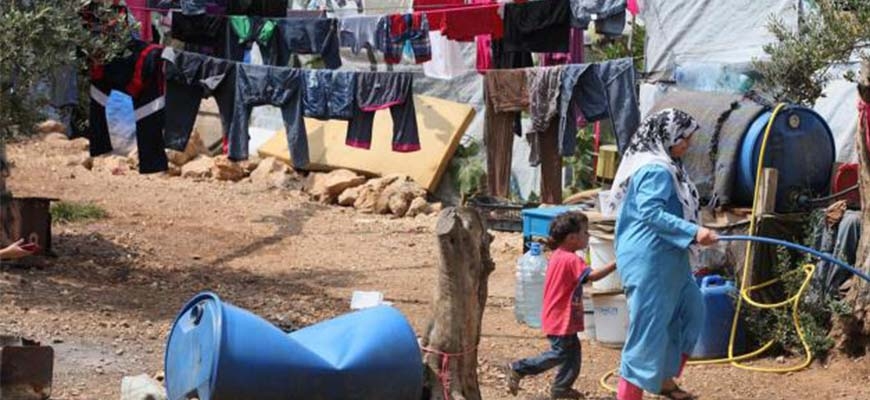
21 Aug 2015
“MSF said” The Syrian refugees in Lebanon’s Bekaa region, suffering from very high temperatures, up to 42 ° C, and cause to them many diseases, most notably the lack of breath case.
The organization explained in a statement on Thursday, that the refugees who reach their numbers to 410 thousand refugees, most of whom live in unfinished constructed buildings in one of the more than 900 residential community, or in tents in fields along the way.
The statement continued, “The walls and ceilings of these dwellings made of plastic and cannot protect the residents from the blazing sun; in a time refugees suffer of getting water, and often sewage leak to areas surrounding these tents where children play.”
The organization pointed out that more than half of the patients who visit the four clinics in the region are suffering from disease which caused by heat.
Belal Alqasem, a doctor work in one of the organization’s clinks in Bekaa region, said: “We always treat in the summer respiratory tract infections and digestive problems such as diarrhea, as well as skin infections, and these diseases are directly linked to poor living conditions endured by patients. And we have seen an increase of 20 per cent in the usual summer diseases compared to last year, and this may be linked to the recent heat wave”.
The organization showed that during the months of June and July, the respiratory infections formed more than 42 per cent of all diseases which treated by MSF teams in the Bekaa. However, refugees suffer from lack of access to clean water, living conditions and overcrowding, what causes skin diseases as scabies, which has become commonplace among them.
The head of the medical activities of the organization in Bekaa, Dr. Wael Harb: “Because of the overcrowding, any patient can transmit the infection to everyone”. He added: “We provide medicines while awareness health team explaining how to reduce the spread of infection, but we cannot change the root causes that led to these problems, which is the poor hygiene and the difficult living conditions.”

 عربي
عربي